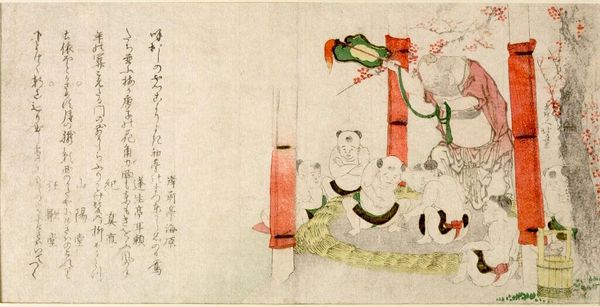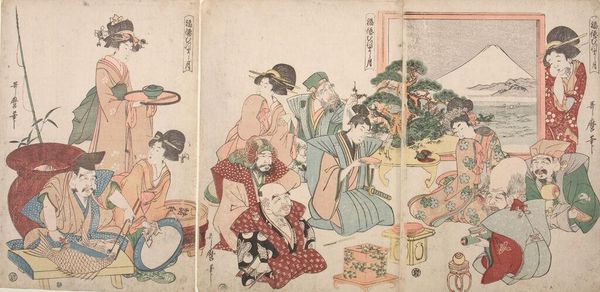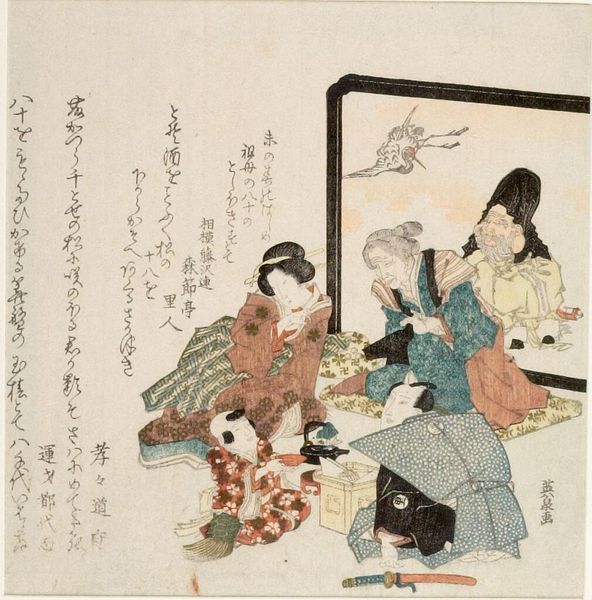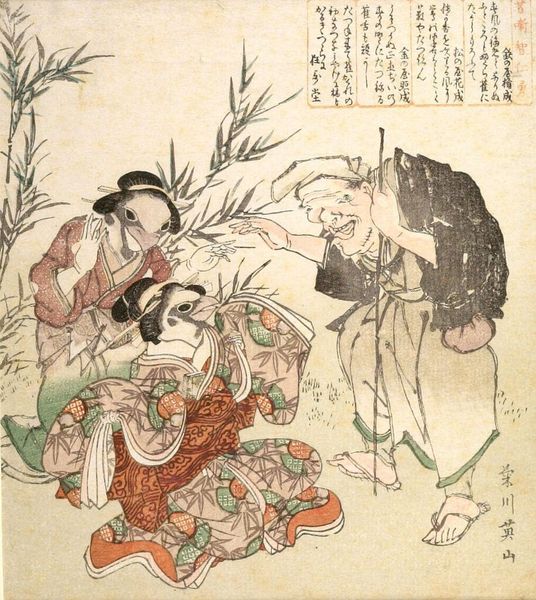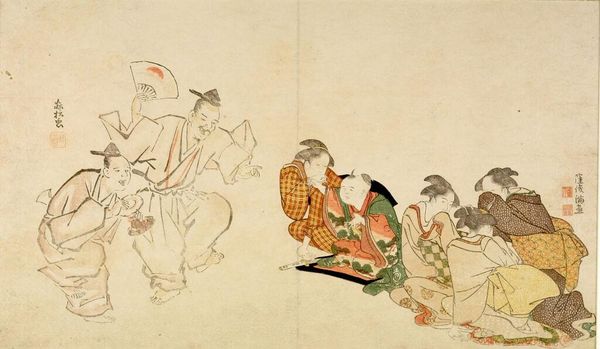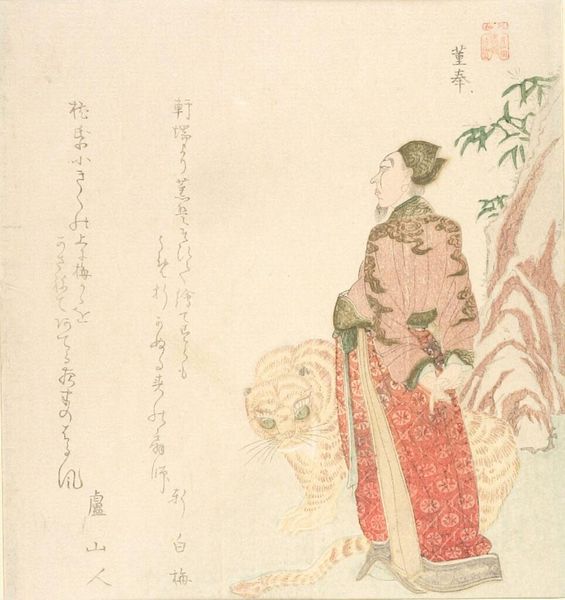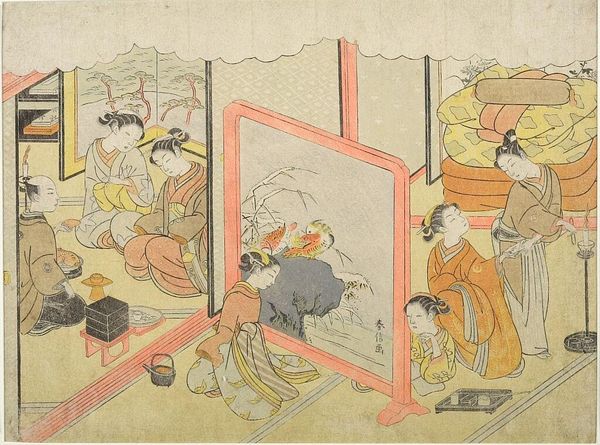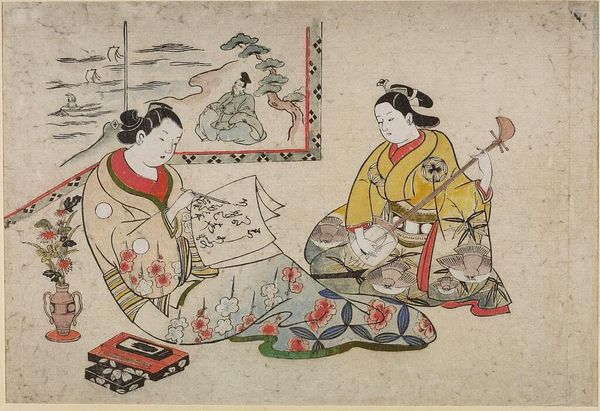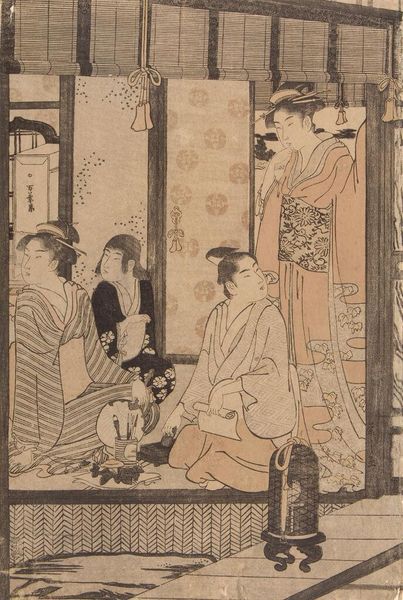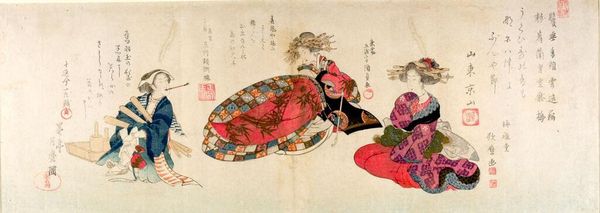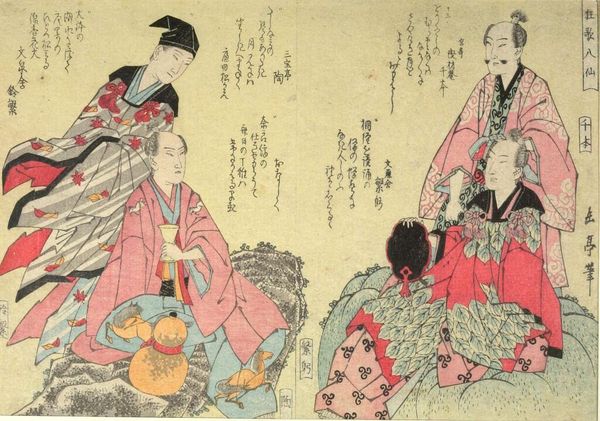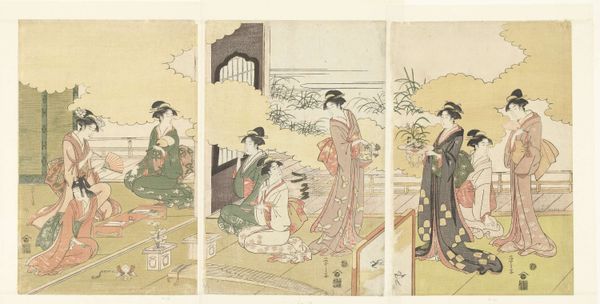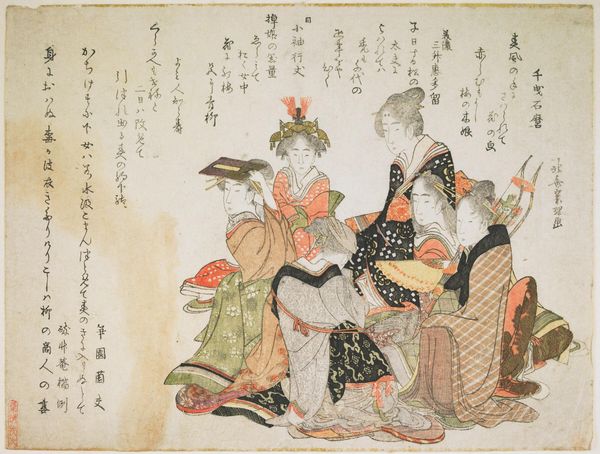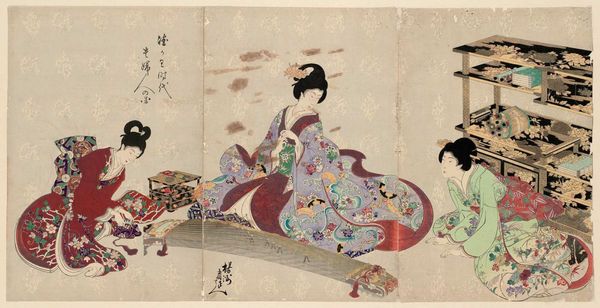
THE SIX POETS REPRESENTED IN FLOWERS OF SUMMER AND AUTUMN c. 19th century
0:00
0:00
Copyright: CC0 1.0
Curator: This is Utagawa Hiroshige's print, "The Six Poets Represented in Flowers of Summer and Autumn," held at the Harvard Art Museums. Editor: What a peculiar tableau! There's a dreamlike quality to it, almost theatrical with its strangely costumed figures. Curator: Indeed. This piece speaks to the Edo period's fascination with associating poets with specific seasons and floral emblems, influencing cultural identity. Editor: I see the figures adorned with petals, almost consumed by symbolic blooms. It's a rich visual metaphor, blurring the line between man and nature. The chrysanthemum, for instance, suggests longevity. Curator: Precisely. Hiroshige uses familiar icons to create a layered reading experience. These poet-flower pairings helped establish an aesthetic ideal, but also reinforced social hierarchies. Editor: I find myself drawn to the visual language—the density of the symbols creates this captivating narrative. Curator: A narrative that, in its time, helped shape public perception and cultural memory. Editor: And even now, invites us to consider the enduring relationship between art, identity, and the natural world.
Comments
No comments
Be the first to comment and join the conversation on the ultimate creative platform.
